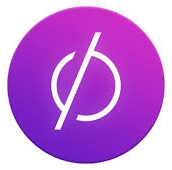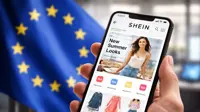Facebook goes all out to push Free Basics in India
17 Dec 2015
Facebook is making a concerted push for its controversial Free Basics initiative – formerly called Internet.org – in India, where it doesn't seem to have caught on as the company expected.
 With over 125 million users, India is Facebook's largest market outside the United States. Now, the world's largest social network is seeking to leverage the strength of those numbers to pressure the government.
With over 125 million users, India is Facebook's largest market outside the United States. Now, the world's largest social network is seeking to leverage the strength of those numbers to pressure the government.
Indian users who log on Facebook today are getting notifications from their friends urging them to send a message to the Telecom Regulatory Authority of India ''in support of digital equality in India''.
Once a user taps on the notification, they are confronted by a message to Trai that Facebook helpfully pre-fills for you. It reads: 'To the Telecom Regulatory Authority of India, I support digital equality for India. Free Basics provides free access to essential internet services like communication, education, healthcare, employment, farming and more. It helps those who can't afford to pay for data, or who need a little help getting started online. And it's open to all people, developers and mobile operators. With 1 billion Indian people not yet connected, shutting down Free Basics would hurt our country's most vulnerable people. I support Free Basics and digital equality for India. Thank you. '
But the real offensive comes after you scroll down: 'But Free Basics is in danger in India. A small, vocal group of critics are lobbying to have Free Basics banned on the basis of net neutrality. Instead of giving people access to some basic internet services for free, they demand that people pay equally to access all internet services even if that means 1 billion people can't afford to access any services.
'This, of course, has been Facebook's only stand about getting a billion unconnected Indians online: some access is better than no access.'
Critics have argued that Free Basics, which uses 'zero-rating', a telecom industry term for data that is subsidised for an end user by a third-party, splits the internet into free and paid tiers, and thus violates the principles of net neutrality, which state that all data should be treated equally.
In October, Tim Berners-Lee, the inventor of the World Wide Web, said that consumers should ''just say no'' to initiatives like Facebook's Internet.org because ''programs like that are not the full internet'' (See: WWW founder slams Facebook's 'Free Basics' move).
''Facebook's claim about this being a small, vocal minority is disingenuous,'' says net neutrality activist and Medianama editor-in-chief Nikhil Pahwa. ''More than a million Indians sent in emails to the Trai back in April showing their support for net neutrality in the country.''
The problem with Free Basics, says Pahwa, is that it's not an open platform. Facebook still reserves the right to approve or reject any service that signs up for it and thus gives Facebook and its partners a competitive advantage.
''This is an attempt by Facebook to mislead people into thinking that those opposing Free Basics do not want access for a billion Indians,'' adds Pahwa. ''But you must remember that there are other alternatives to Free Basics like Mozilla's Grameen Phone programme that offers 20 MB of free data to anyone who buys a low-cost device, that does not violate net neutrality.
Facebook's petition comes on the heels of a consultation paper released by Trai last week on zero-rating, that invited responses from key stakeholders aka telecom operators and the general public by 30 December.
An official respone from a Facebook spokesperson justified the campaign by saying, ''Hundreds of millions of people in India use the internet every day and understand the benefits it can bring. This campaign gives people the opportunity to support digital equality in India.''
The spokesperson also said that the programme lets people speak in support of the one billion people in India who remain unconnected, and helps in letting them participate in the public debate that is being held by Trai on differential pricing for data services.
With over a billion people still unconnected to the internet, India is the new battle ground for Silicon Valley giants like Facebook and Google, who would benefit immensely if these people came online and started using their services.
At an event in New Delhi on 16 December, Marian Croak, Google's vice president for access strategy and emerging markets, told the Hindustan Times that the company would support net neutrality as it rolls out access initiatives like Project Loon and RailTel in the country.


















